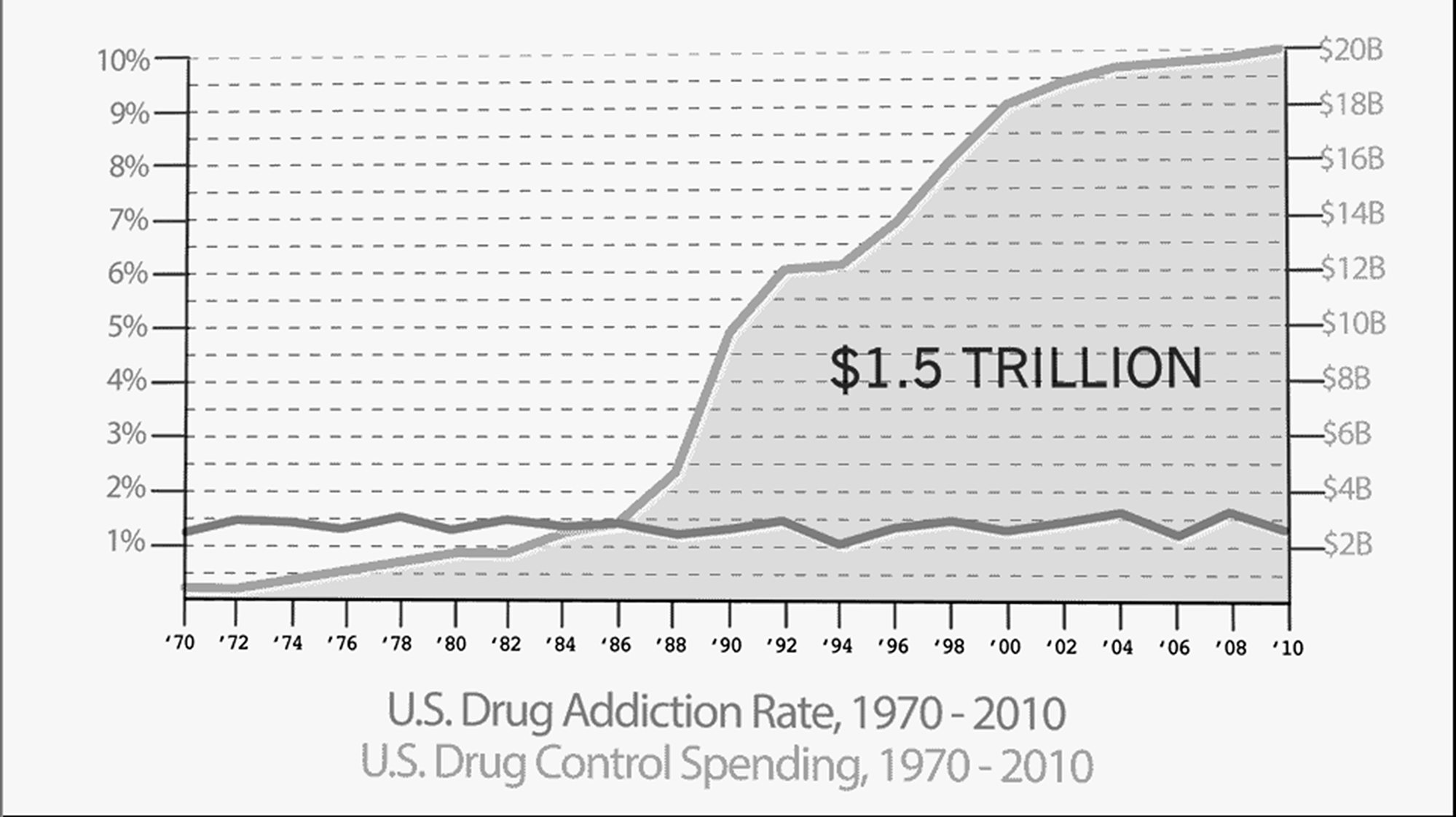The wasted war
 Drugs are bad, m’kay? The War on Drugs is worse. The War on Drugs, like the War on Crime, the War on Terrorism, the War on Cancer, the War on Poverty, the War on Obesity, and the War on [fill in the blank], is logistically doomed to fail.
Drugs are bad, m’kay? The War on Drugs is worse. The War on Drugs, like the War on Crime, the War on Terrorism, the War on Cancer, the War on Poverty, the War on Obesity, and the War on [fill in the blank], is logistically doomed to fail.
Not only is it impossible to fight a substance, a symptom, or an ideology, but it implies a distinction between the good and the bad guys. With Building Bridges coming up so soon, I find it extremely pertinent to start a dialogue on this fiendish war. Despite the ever rising POW count, there is no end in sight, no treaties to be signed or ceasefires declared. It is impossible to even divide the “War” into two sides. How can we ever win? What is winning? And why should we keep fighting?
Who benefits from the War on Drugs? Dig into the statistics and you’ll find the major winners include the cartels, prison owners (there are for-profit prisons in the United States), and prison food suppliers.
According to the April 2012 Time article, “Incarceration Nation,” over half of the U.S. federal prison population is locked up for drug charges, increasing from 15 to 148 inmates per 100,000 between 1980 and 1996, a number ever rising, and this change corresponds to the increasing usage of the term “The War on Drugs.” Convincing evidence that the war is working, right? No. Four out of five current drug-related convictions are for non-violent possession.
One of the DEA’s core goals is cutting the drug supply, so if this war is working, where do all of these users keep coming from? Should we not expect a gradual decrease in possession-related convictions if supply is dropping? The War on Drugs is an offensive war, a type which is notoriously difficult to fight. We are bursting a metaphorical dam in this war; look at the spillage of the cartels from Mexico into the Southwest United States. The suppliers are slipping through cracks.
The war is a costly, lengthy one. For over thirty years we have funded a war with incredibly few positive results. CNN calls it “a trillion-dollar failure.” According to a Pew study, an inmate costs around 30,000 dollars per year in upkeep, compare that to the 11,000 or so used on the education of a public school student. In 2010, we spent around 500 dollars per second on the War on Drugs, a figure directly from the Office of National Drug Control Policy. When the time comes to cut budgets, why is this money-spewing war never on the table? Fear and the status quo.
The status quo is slowly changing. More and more states are tolerating some level of marijuana possession, but that is not enough. All drugs need to be legalized, a major point of contention due to a lack of education and critical analysis.
Many of us were told the horrors of drugs from an early age, by parents, educators, and school guest speakers. But those are stories, anecdotes, not data.
The U.S. lacks relevant data on many illegal drugs due to regulations preventing research and the stigma associated with drugs. The World Health Organization, a branch of the UN, found that cocaine, when cut with an inert substance, does little lasting harm to a person if used in moderation.
Medical researchers were fired recently by the UK government for their report on a valid, reviewed study finding MDMA (ecstasy) to cause little lasting harm to a person if used in moderation. Evidence is conclusive that LSD (acid) and psilocybin (magic mushrooms) cause no physical harm. Sound like the stories you heard in school?
Even if drugs are harmful, and some certainly are, they should not be illegal. I will avoid the argument that a consenting adult should be able to do what they wish with their bodies and instead address an argument of logistics.
The cartels support and benefit from the illegality of drugs because it puts the flow of drugs entirely in their hands, and funds side industries like gun running. Should drugs be regulated and administered by legitimate organizations, the cartels would face huge legal competition.
The drugs can also be tested and manufactured properly, avoiding the “meth-splosions” we hear so much about, and the less often heard of deaths resulting from impurely cut drugs like heroin and cocaine.
Currently, addiction to a drug, a health problem at its core, is essentially a crime. Medical help is not easily sought and received for drug addicts, except those who can afford the expense of rehab centers. For those who cannot, prison is the answer.
Instead of rehabilitation, we permanently brand them as criminals, greatly decreasing their ability to return as functional members of society and putting them into the same legal category as rapists and murderers. The U.S. has one of the highest repeat offender rates in the world.
The drug war is similar to alcohol prohibition in so many ways. Corruption and organized crime flourish at our expense. People are given scarlet letters for ingesting substances society deems “bad.” It is the same problem, and it is the same solution.
Did I mention the DEA gets to keep most of the money they find associated with a drug bust?

I absolutely agree. The war on drugs in getting over the top, and they really need to just legalize drugs already because it is doing more harm than the drugs themselves! In the meantime there’s legalinyourarea.com to find drugs that are already legal.
Of course war on drugs is madness, like take cannabis, would it be nice to take your medicine legally? I urge you to check out autoflowering-cannabis.com for these small cannabis plants!
We ought to be really worried about the legal opioid drugs that young people are actually overdosing on and not those that absolutely no one overdoses on.And marijuana is medically used and available at mjseedscanada.ca
The war on drugs is just about money from a political standpoint.
Governmental ethics play no role.
Great insight into our wasting more money in America. americanhealthandlife.com